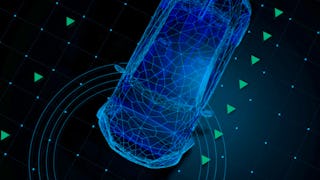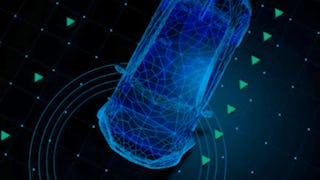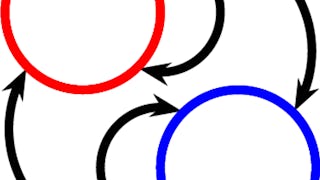This course will provide different techniques on the verification of autonomous systems against stability, regular, or omega-regular properties. Such techniques include Lyapunov theories, reachability analysis, barrier certificates, and model checking. Finally, it will introduce several techniques on designing controllers enforcing properties of interest over the original autonomous systems.

Enjoy unlimited growth with a year of Coursera Plus for $199 (regularly $399). Save now.

Verification and Synthesis of Autonomous Systems
This course is part of Foundations of Autonomous Systems Specialization

Instructor: Majid Zamani
Included with
(10 reviews)
Recommended experience
What you'll learn
Analyze stability properties of linear systems
Compute over-approximations of reachable sets for some classes of systems
Perform model checking for finite systems
Synthesize controllers for safety and reachability specifications for finite systems using fixed-point algorithms
Skills you'll gain
Details to know

Add to your LinkedIn profile
7 assignments
See how employees at top companies are mastering in-demand skills

Build your subject-matter expertise
- Learn new concepts from industry experts
- Gain a foundational understanding of a subject or tool
- Develop job-relevant skills with hands-on projects
- Earn a shareable career certificate

There are 4 modules in this course
Welcome to the beginning of our exploration into formal verification and synthesis within the model-based design framework. In this introductory module, we will guide you through the key processes of specification, design, verification, and refinement of systems. We will delve into the vital role of formal methods in guaranteeing the correctness of systems. Through captivating examples, we will demonstrate the importance of formal verification, especially in safety-critical and life-critical applications. This module lays the foundation for the more advanced topics we will address throughout the course.
What's included
3 videos9 readings
In this module, we focus on the verification of finite systems, particularly emphasizing regular safety properties and ω-regular properties (including those expressed as linear temporal logic formulae). We will explore a variety of verification techniques and delve into the theoretical underpinnings essential for understanding how finite systems are verified. Through detailed examples and clear, comprehensive explanations, we aim to provide a deep understanding of how these properties are verified in the context of finite systems.
What's included
13 videos1 reading3 assignments
In this module, we explore the synthesis of controllers for finite systems, focusing on enforcing certain linear temporal logic (LTL) formulas, including safety, reachability, persistence, and recurrence. We aim to understand how controllers can be designed to render specific LTL formulas for closed-loop systems. The module provides essential theoretical frameworks and practical algorithms necessary for synthesizing such controllers, with an emphasis on the roles of fixed-point operators and algorithms in the computation processes. Additionally, we will discuss various synthesis techniques that depend on the properties of the system and the involved LTL formulas.
What's included
12 videos1 reading2 assignments
In this module, we will explore the concepts of abstraction and refinement within the context of control systems. We will delve into feedback refinement relations to understand how controllers can be modified or replaced to meet new specifications without altering the overall system behavior. The module also covers the computation of abstractions, demonstrating how we derive abstract models from complex systems to facilitate analysis and design. Additionally, we will discuss practical methods for abstracting different types of control systems, equipping us with the skills to apply theoretical concepts in real-world scenarios.
What's included
9 videos2 readings2 assignments
Earn a career certificate
Add this credential to your LinkedIn profile, resume, or CV. Share it on social media and in your performance review.
Build toward a degree
This course is part of the following degree program(s) offered by University of Colorado Boulder. If you are admitted and enroll, your completed coursework may count toward your degree learning and your progress can transfer with you.¹
Instructor

Offered by
Explore more from Software Development
 Status: Free Trial
Status: Free TrialUniversity of Colorado Boulder
 Status: Free Trial
Status: Free TrialUniversity of Colorado Boulder
 Status: Free Trial
Status: Free TrialUniversity of Colorado Boulder

University of Colorado Boulder
Why people choose Coursera for their career




Frequently asked questions
To access the course materials, assignments and to earn a Certificate, you will need to purchase the Certificate experience when you enroll in a course. You can try a Free Trial instead, or apply for Financial Aid. The course may offer 'Full Course, No Certificate' instead. This option lets you see all course materials, submit required assessments, and get a final grade. This also means that you will not be able to purchase a Certificate experience.
When you enroll in the course, you get access to all of the courses in the Specialization, and you earn a certificate when you complete the work. Your electronic Certificate will be added to your Accomplishments page - from there, you can print your Certificate or add it to your LinkedIn profile.
Yes. In select learning programs, you can apply for financial aid or a scholarship if you can’t afford the enrollment fee. If fin aid or scholarship is available for your learning program selection, you’ll find a link to apply on the description page.
More questions
Financial aid available,





